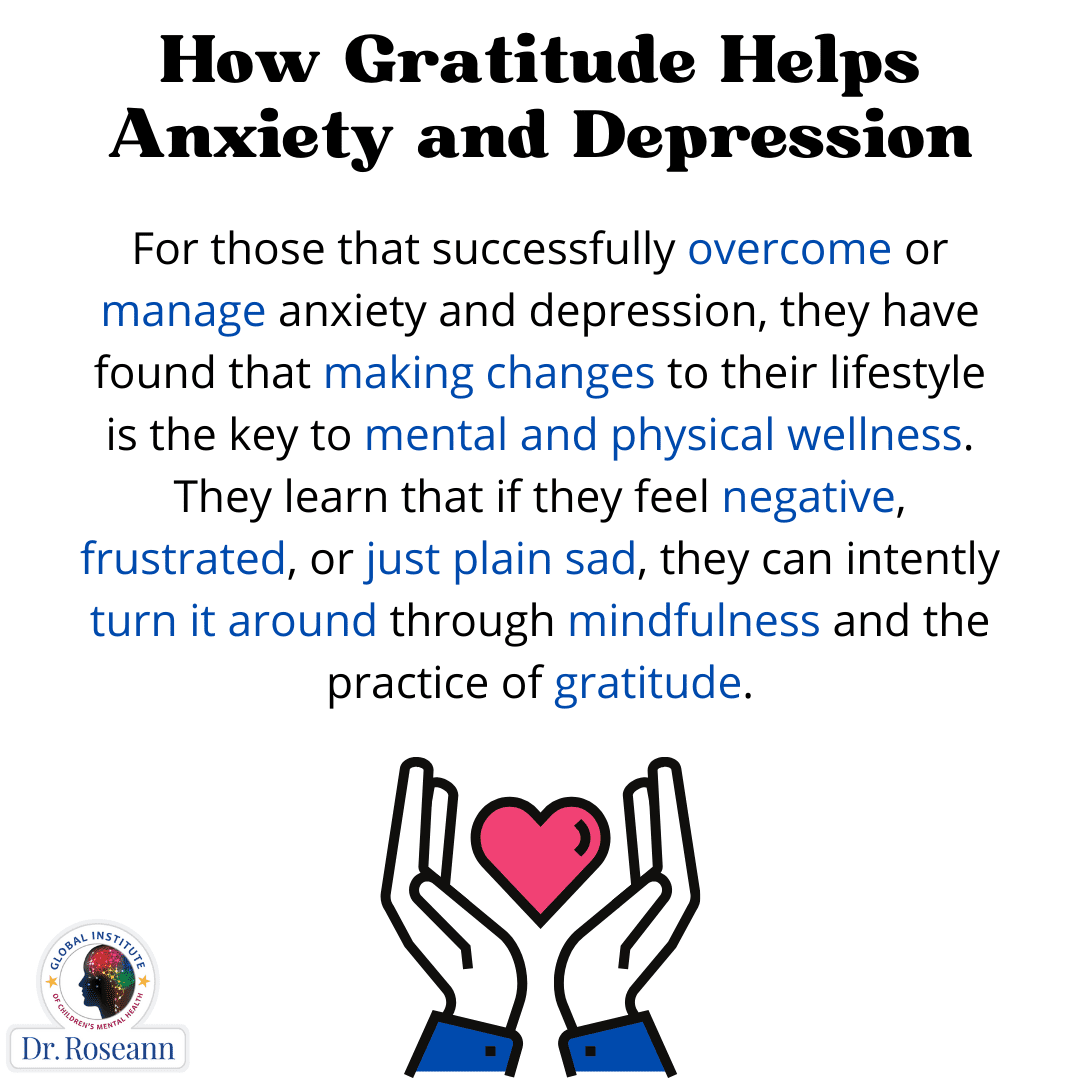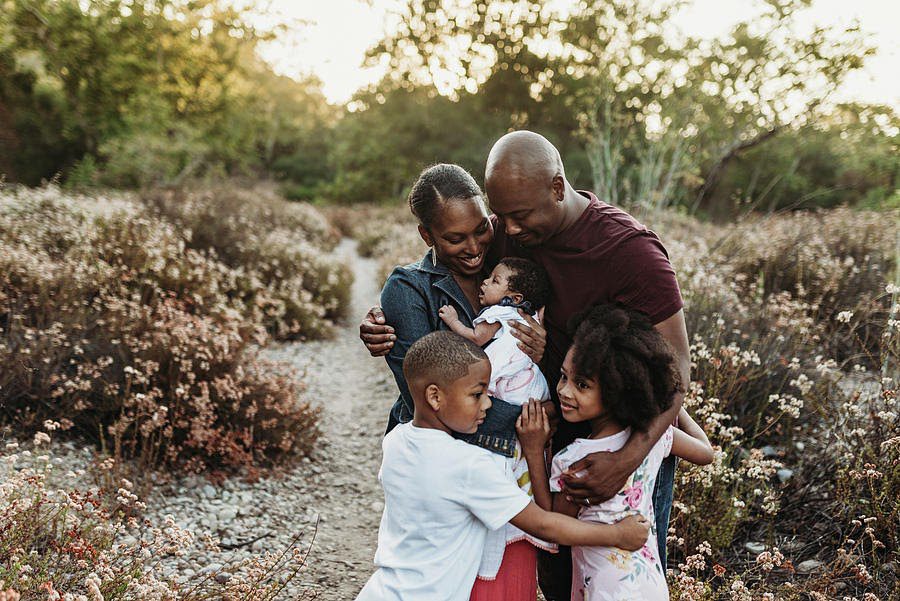For those that successfully overcome or manage anxiety and depression, they have found that making changes to their lifestyle is the key to mental and physical wellness. They learn that if they feel negative, frustrated, or just plain sad, they can intently turn it around through mindfulness and the practice of gratitude.
You may have tried to be more grateful in your daily life but don’t feel the benefits of gratitude, so that is why I am here to break down exactly what you need to do to add daily gratitude to your life to counter stress, improve reliance and promote good mental health.
The Neuroscience of Gratitude
Gratitude is to be appreciative of what one has and what others do for us. There is no doubt that it feels good when someone holds the door open for us, or brings us chocolates, or brings you soup when you are sick but it also activates your brain too.
Research demonstrates gratitude activates specific regions of the brain, including the anterior cingulate cortex and medial prefrontal cortex. These regions are part of the circuitry responsible for moral cognition, value judgment and perspective taking.
Gratitude also improves functioning in the emotional center of the brain, amygdala. Research found that improving self-regulation of emotions led to increased self-motivation in study participants, which is often impaired in those with anxiety and depression.
Self-regulating our emotions leads to less stress hormones and activation of the HPA-Axis, which can lead to chronic stress states and clinical issues such as anxiety, depression, OCD, and pain.
What Does the Research Say About Gratitude and How Gratitude Helps Depression and Mental Health?
We know through positive psychology research that with the practice of gratitude, one has a greater sense of wellbeing and happiness. Gratitude has also been shown to increase resilience, strengthen social relationships, and reduce stress and depression and counter mental illness.
Although, The Journal of Happiness Studies found a modest effect on anxiety and depression with their meta analysis of the data, there are many individual studies that demonstrate just how helpful gratitude can be in protecting against and countering anxiety and depression.
Research shows us that gratitude practices can increase positive affective and feelings of happiness and life satisfaction, and lower negative affect and depressive symptoms because it shifts your thinking to positive events.
Gratitude can be a powerful shifter from a negative to positive mindset that is easy to incorporate in your day and can be practiced by anyone of any age. When you are depressed or anxious, being self-critical and negative self-talk can be hard to counter but studies suggest that gratitude can counteract negative thinking.
When we practice gratitude, it forces the brain to focus on positive things that make us feel good and shift our brain away from things that cause us to get stuck in a negative thought pattern.
How is Gratitude Different from Positivism?
While positivism and gratitude often go hand in hand, gratitude is about appreciating the lesson in whatever hardships come your way while still connecting to the accompanying emotions such as grief, sadness, irritation etc. When things feel out of control, gratitude can be a powerful grounder and rebalancer.
Why Daily Gratitude Practices Are Important
The practice of gratitude is so important for those with depression, anxiety and other mental health issues because it is so easy and effective. With so many feeling overwhelmed right now, gratitude practices are a great starting point.
Not only is gratitude a natural antidepressant, it is an important part of our daily joy practice. I often say, “There is no room for fear and anger in our hearts when we fill it with gratitude.”
The biggest misconception about gratitude is that it is something that you can do once in a while to feel the deeper effects. The reality is that just like anything else, you need to integrate small gratitude practices into your life in order for your brain to shift to a gratitude mindset.
How Can Kids Learn Gratitude?
Kids learn from what their parents do and showing gratitude in your actions through hugs and nonverbal communication can go a long way in helping your own children learn to build optimism, problem-solving skills, and resilience. Being explicit about what you are grateful for and teaching your children to do the same gives your child a tool for managing stress that can help them throughout their lives.
There are many tips to incorporate gratitude into your daily life but it starts with making it a part of your daily routine. Whether you say it outloud, use a gratitude journal or go on a gratitude walk, there are so many ways to get the benefits of gratitude. Expressing gratitude and feeling gratitude can be learned by anyone of any age and brings on a flood of positive emotions for you and the people around you.

Always remember… “Calm Brain, Happy Family™”
Disclaimer: This article is not intended to give health advice and it is recommended to consult with a physician before beginning any new wellness regime.
Always remember… “Calm Brain, Happy Family™”
Are you looking for SOLUTIONS for your struggling child or teen?
Dr. Roseann and her team are all about solutions, so you are in the right place!
There are 3 ways to work with Dr. Roseann:
You can get her books for parents and professionals, including: It’s Gonna Be OK™: Proven Ways to Improve Your Child’s Mental Health, Teletherapy Toolkit™ and Brain Under Attack: A Resource For Parents and Caregivers of Children With PANS, PANDAS, and Autoimmune Encephalopathy.
If you are a business or organization that needs proactive guidance to support employee mental health or an organization looking for a brand representative, check out Dr. Roseann’s media page and professional speaking page to see how we can work together.
Dr. Roseann is a Children’s Mental Health Expert and Therapist who has been featured in/on hundreds of media outlets including, CBS, NBC, FOX News, PIX11 NYC, The New York Times, The Washington Post,, Business Insider, USA Today, CNET, Marth Stewart, and PARENTS. FORBES called her, “A thought leader in children’s mental health.”

She is the founder and director of The Global Institute of Children’s Mental Health and Dr. Roseann Capanna-Hodge. Dr. Roseann is a Board Certified Neurofeedback (BCN) Practitioner, a Board Member of the Northeast Region Biofeedback Society (NRBS), Certified Integrative Medicine Mental Health Provider (CMHIMP) and an Amen Clinic Certified Brain Health Coach. She is also a member of The International Lyme Disease and Associated Disease Society (ILADS), The American Psychological Association (APA), Anxiety and Depression Association of America (ADAA) National Association of School Psychologists (NASP), International OCD Foundation (IOCDF) International Society for Neurofeedback and Research (ISNR) and The Association of Applied Psychophysiology and Biofeedback (AAPB).
© Roseann-Capanna-Hodge, LLC 2023
Disclaimer: This article is not intended to give health advice and it is recommended to consult with a physician before beginning any new wellness regime. *The effectiveness of diagnosis and treatment vary by patient and condition. Dr. Roseann Capanna-Hodge, LLC does not guarantee certain results.













